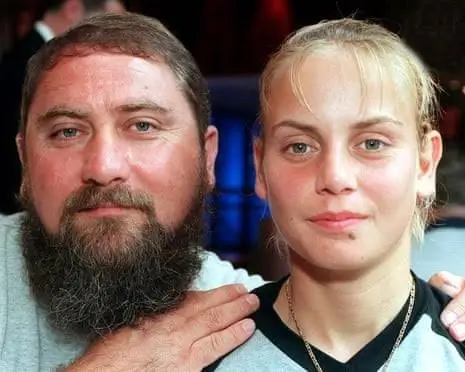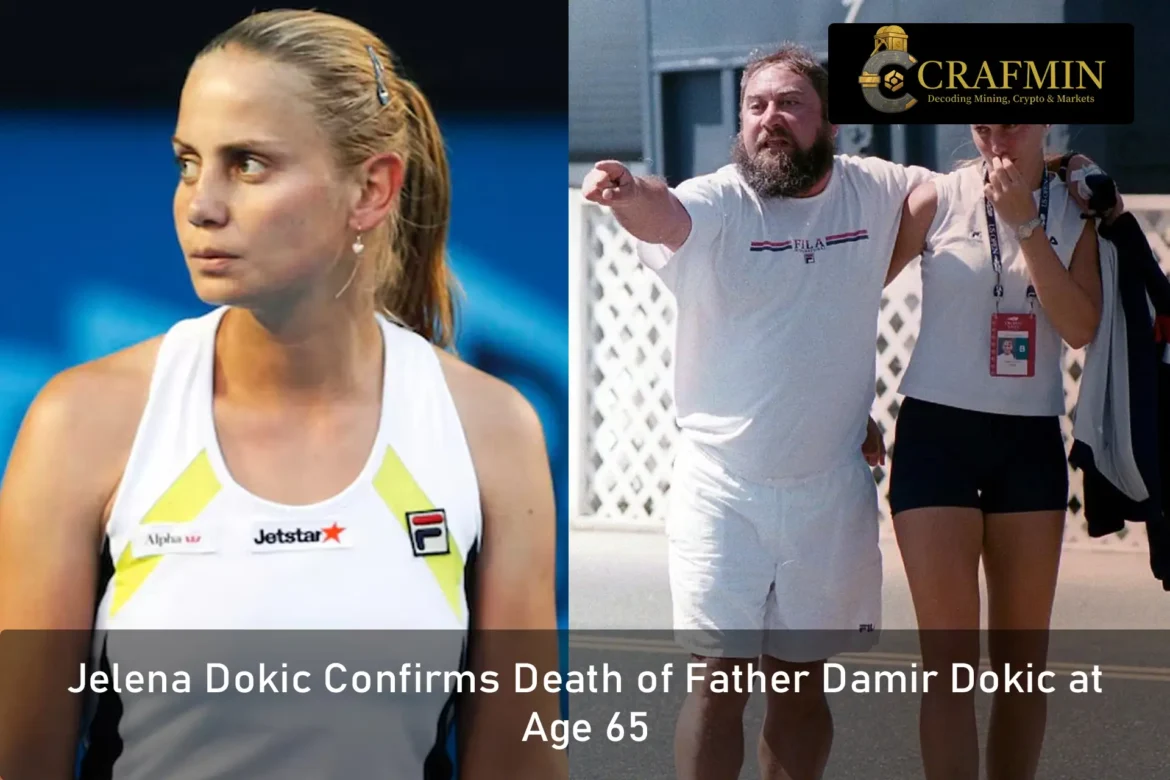Former tennis star Jelena Dokic has confirmed the death of her estranged father, Damir Dokić, at the age of 65, bringing a deeply complex and public chapter of her life to a close.
In a heartfelt social media post on Wednesday, Jelena acknowledged her father’s passing without judgment or bitterness, simply stating that “Damir Dokić has died.” Her message was brief but telling, reflecting a tone of closure rather than reconciliation.

Image 1: Jelena Dokic during a media appearance or post-match interview
Source: The Guardian
A Father-Daughter Relationship Marked by Public Turmoil
While many remember Jelena Dokić for her on-court brilliance and steely resilience, her personal story was equally well-known—particularly her troubled relationship with Damir, who managed her early tennis career.
The pair’s falling out was widely publicised during the early 2000s, as Damir Dokić became notorious for his volatile behaviour and outbursts. He was banned from several tournaments, clashed with tennis officials, and made headlines for his erratic conduct.
Jelena later revealed in her 2017 memoir Unbreakable that her father had subjected her to years of physical and emotional abuse—allegations he did not publicly deny. The book marked a turning point in Jelena’s public image, reframing her not just as an athlete but as a survivor.
Jelena’s Statement: Quiet Strength in a Few Words
Jelena Dokić’s public acknowledgement of her father’s death carried none of the sentimentality that often accompanies such announcements—but it wasn’t cold, either.
“Damir Dokić has died,” she wrote simply, without elaboration or tribute. Her decision not to attend the funeral, as confirmed by sources close to her, is consistent with the firm boundaries she set after years of estrangement.
Image 2:Former tennis star Jelena Dokic with father (Source: The Guardian)
Damir Dokic: From Tennis Patriarch to Tabloid Fixture
Born in Serbia, Damir Dokić rose to prominence in the tennis world as Jelena’s coach and manager during her breakout years in the late 1990s and early 2000s. However, his presence in the spotlight soon shifted from proud father to disruptive figure.
He became infamous for his erratic behaviour, including a series of public incidents that led to his removal from various WTA events.
In 2009, he was sentenced to prison in Serbia for threatening to kill Australia’s ambassador, a bizarre episode that marked one of his final appearances in international headlines.
Despite their shared tennis history, Jelena Dokic made it clear over the years that she had moved on from the legacy he left behind.
Public Reaction: A Moment of Reflection, Not Celebration
Social media reactions to Damir Dokić’s passing have ranged from expressions of sympathy to reminders of the abuse Jelena endured. While some noted the grief that naturally follows a parent’s death, others praised Jelena’s quiet dignity and honesty in handling the moment.
The Jelena Dokic most Australians know today is not defined by that past but by her resilience, commentary work, and continued advocacy for mental health and abuse survivors.

Image 3: Jelena Dokic speaking at a charity or mental health awareness event
Source: [LinkedIn]
Conclusion: A Chapter Closes, But the Conversation Continues
The death of Damir Dokić at age 65 closes a complicated chapter in the public and private life of Jelena Dokic. Though her father played a major role in shaping her early career, it was Jelena’s courage to speak out—and step away—that ultimately defined her legacy.
This moment is less about mourning a relationship than acknowledging that it has ended, on her terms. And in doing so, she continues to set an example for others navigating the difficult balance between personal history and personal healing.

